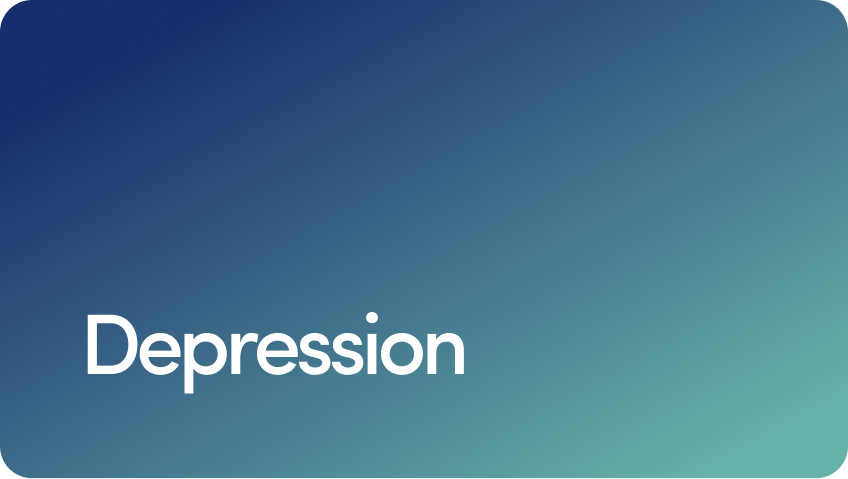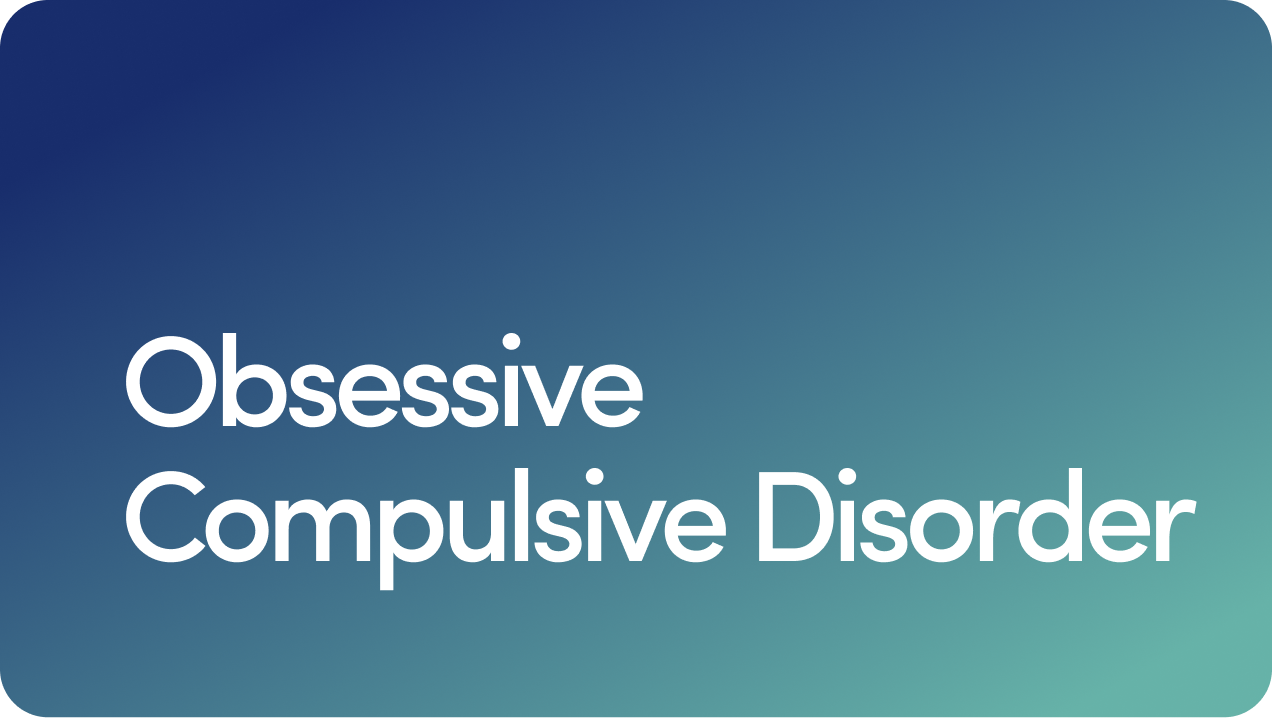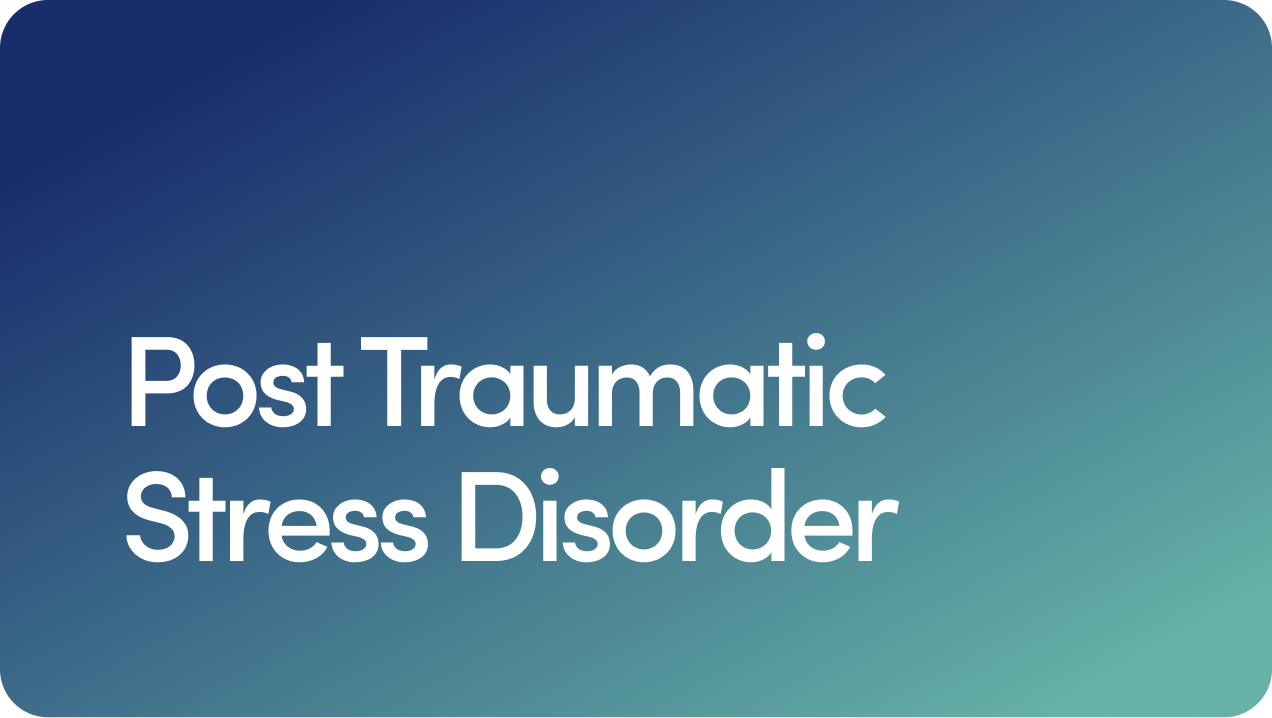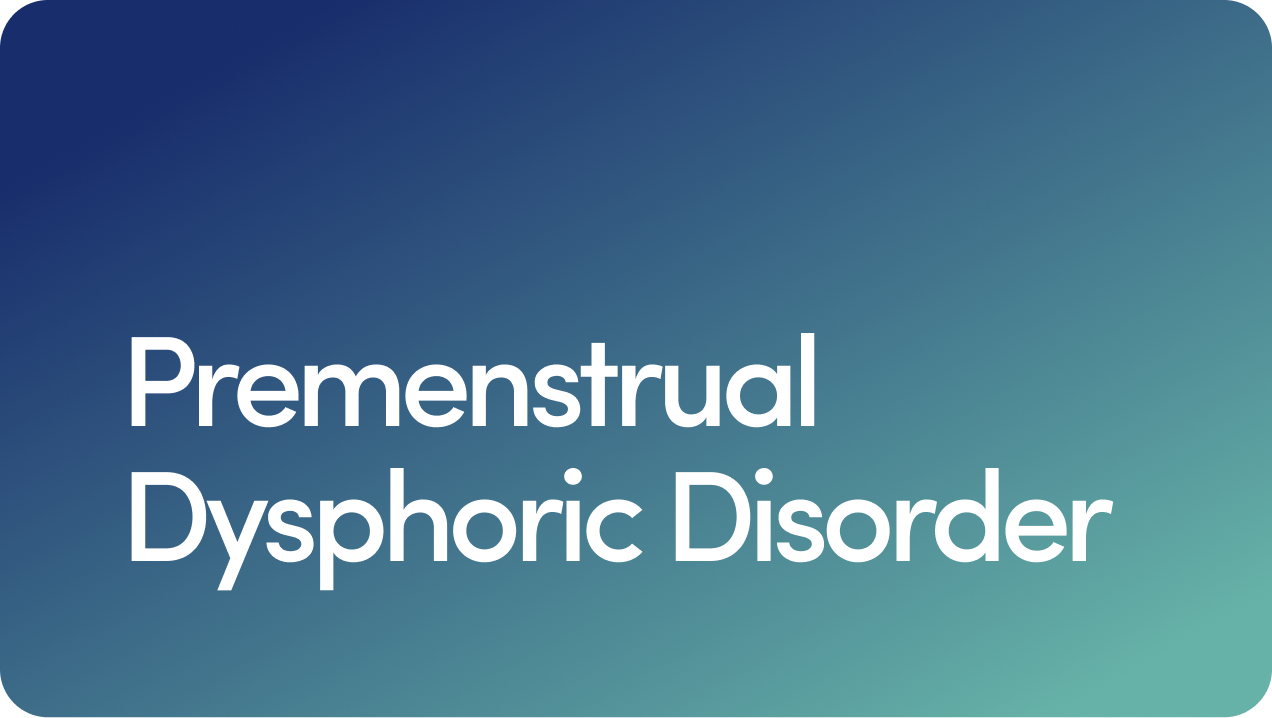Content
Free Mental Health Assessment
Can You Go Back on Antidepressants After Stopping?

If you’ve been asking yourself “Should I go back on antidepressants?”, you’re not alone. It’s far from uncommon to experience symptoms of depression and other mental health disorders again after you stop antidepressant treatment. And in many cases, restarting your medication (under the supervision of your healthcare provider, of course) is the most effective way to manage your symptoms and start feeling better again.
Ahead, we’ll explain how and why depression can make an unwanted comeback in your life, as well as why restarting antidepressants after stopping is both common and normal. We’ll also discuss what you should be aware of if you start using antidepressants again after a period without medication.
Content
When you start to experience the symptoms of depression again, it’s important to talk with your healthcare provider as soon as possible. If they think you’re at risk of relapse, they may suggest going back on antidepressants.
It’s very normal for depression symptoms to make a comeback, even after you stop taking your antidepressants or participating in psychotherapy. In fact, researchers estimate that 60% of people who recover from depression experience one or more depressive episodes later in life. Among those who experience two or more depressive episodes, the rate of recurrence is even higher, with 70% having another recurrence of clinical depression.
You may go back on the same antidepressant you were taking before you stopped, particularly if it was effective at reducing your symptoms and came with few side effects. Or, your prescriber may suggest a different antidepressant if your condition, health status, or treatment needs have changed.
Depending on how long it’s been since you stopped taking medication, treatment may be restarted at a low dose and gradually increased, as to minimize potential side effects and allow your body to readjust. Restarting antidepressants side effects will likely be similar to your first experience on antidepressants, especially if you’re taking the same type of antidepressant.
Examples of common antidepressant side effects include:
Nausea and vomiting
Diarrhea
Sleepiness
Weight gain
Sexual dysfunction
Remember: Antidepressants work, but their effects aren’t immediate. If you’re prescribed an antidepressant to treat depression, anxiety symptoms, or a related issue, you might need to take your medication for several weeks before you feel any improvements.
As your depression symptoms begin to fade and you make progress toward recovery, you might feel like it’s OK to stop taking your antidepressant. That may or may not be true. In order to prevent the depression from coming back, you should take it for at least six months, starting from the time you feel back to your normal self. If you’re not having any side effects, a year is even better. If you’ve experienced three or more depressive episodes in your lifetime, it’s best to take the medication long term. If you stop, the depression is very likely to come back. But if it’s your first episode, and you’ve been feeling well for at least six months, stopping is a reasonable thing to do.
However, this is something you should get medical advice on before doing. That’s because it’s important to gradually taper drugs like antidepressants to avoid antidepressant discontinuation syndrome. It’s estimated that around 20% of people experience antidepressant discontinuation symptoms after stopping antidepressants without properly tapering off of them first.
Antidepressant withdrawal symptoms can include:
Flu-like symptoms
Trouble sleeping with vivid dreams
Nausea and vomiting
Dizziness, vertigo, or lightheadedness
“Zaps,” or electric shock-like sensations
Feeling agitated, irritable, or anxious
According to a 2022 review, some factors that may increase the risk of withdrawal effects include:
Using an antidepressant with a short half-life, such as paroxetine (Paxil®) or venlafaxine.
Being on antidepressants for a longer time
Taking a higher dose of antidepressant
The Basics of Antidepressants
Antidepressants are prescription medications generally used to treat depression. They work by changing the activity levels of certain naturally-occurring chemicals in the brain called neurotransmitters, which are involved in regulating moods, stress levels, and behavior.
Experts believe that by changing the activity levels of these chemicals, antidepressants can help reduce the severity of depressive symptoms and make recovery easier.
As the name suggests, antidepressants are mostly used to treat major depression and similar depressive disorders. However, they’re also prescribed to treat other conditions, including anxiety disorders, chronic pain, and premenstrual dysphoric disorder (PMDD).
There are numerous types of antidepressant medications. Types of antidepressants often prescribed include selective serotonin reuptake inhibitors (SSRIs) and SSRI alternatives, such as serotonin-norepinephrine reuptake inhibitors (SNRIs) and tricyclic antidepressants.
SSRIs are the most commonly prescribed type of antidepressant. Examples of SSRIs that you may have heard of include:
Citalopram (Celexa®)
Escitalopram (Lexapro®)
Fluoxetine (Prozac®)
Paroxetine (Paxil®)
Sertraline (Zoloft®)
Other types of antidepressant drugs include:
Serotonin-norepinephrine reuptake inhibitors (SNRIs) like duloxetine (Cymbalta®) and venlafaxine (Effexor®)
Monoamine oxidase inhibitors (MAOIs)
Tricyclic antidepressants (TCAs)
Atypical antidepressants
Our guide to depression medications goes into more detail about the specific medications used to treat depression and how they work.
It’s common, normal, and often recommended to use antidepressants for several months at a time, particularly if you have episodes of depression that come back.
When you’re prescribed an antidepressant for use after your depression symptoms improve, it’s referred to as continuation therapy or maintenance therapy. The goal of this type of treatment is to prevent a relapse of depression in the future.
Many people continue using antidepressants for months, even after their physical and emotional symptoms of depression improve. In fact, research suggests that taking antidepressants for at least 10 to 12 months as part of continuation therapy can help to prevent depression from coming back again.
In other words, it’s absolutely fine to go back on antidepressants if you start to notice symptoms of depression again, especially if you have severe symptoms that have a negative effect on your quality of life and general well-being.
It’s also OK to continue antidepressant therapy after your depression symptoms improve, even when you feel like you’re physically and emotionally “normal” again.
For some people, depression is a one-off mood disorder that goes away with a mix of antidepressants and therapy. For others, chronic depression is an ongoing issue that can disappear and appear again.
If you’ve successfully treated depression before with antidepressants but notice your symptoms coming back after stopping your medication, it’s important to get help. You can do this by talking to your healthcare provider or using our online psychiatry service to connect with a provider online.
If appropriate, you may be prescribed antidepressants again to help you control your symptoms and manage your depression for the long term.
We also offer a range of other mental health services, including online therapy and anonymous support groups, allowing you to access multiple types of help for depression and other mental health conditions.
Going back on antidepressants is fine, and it doesn’t mean you’ve “failed” to properly deal with depression. In fact, the reality is the opposite — with long-term treatment, you’ll gain more control over your symptoms and be better equipped to achieve remission.
8 Sources
- Gabriel M, et al. (2017). Antidepressant discontinuation syndrome. https://pmc.ncbi.nlm.nih.gov/articles/PMC5449237/
- Horowitz MA, et al. (2022). Estimating risk of antidepressant withdrawal from a review of published data. https://pmc.ncbi.nlm.nih.gov/articles/PMC9911477/
- Liu X, et al. (2021). Discontinuation of antidepressants: Is there a minimum time on treatment that will reduce relapse risk? https://pmc.ncbi.nlm.nih.gov/articles/PMC8739188/
- Lye M, et al. (2020). Predictors of recurrence of major depressive disorder. https://pmc.ncbi.nlm.nih.gov/articles/PMC7082055/
- MedlinePlus. (2022). Antidepressants. https://medlineplus.gov/antidepressants.html
- National Institute of Mental Health. (2024). Depression. https://www.nimh.nih.gov/health/topics/depression
- NIH MedlinePlus Magazine. (2023). Commonly prescribed antidepressants and how they work. https://magazine.medlineplus.gov/article/commonly-prescribed-antidepressants-and-how-they-work
- Sheffler ZM, et al. (2023). Physiology, neurotransmitters. https://www.ncbi.nlm.nih.gov/books/NBK539894/
Editorial Standards
Hims & Hers has strict sourcing guidelines to ensure our content is accurate and current. We rely on peer-reviewed studies, academic research institutions, and medical associations. We strive to use primary sources and refrain from using tertiary references. See a mistake? Let us know at [email protected]!
This article is for informational purposes only and does not constitute medical advice. The information contained herein is not a substitute for and should never be relied upon for professional medical advice. Always talk to your doctor about the risks and benefits of any treatment. Learn more about our editorial standards here.
Daniel Z. Lieberman, MD
Education
Doctor of Medicine - New York University Grossman School of Medicine, 1992
Bachelor of Arts - St. John’s College, 1985
Training
Internship & Residency - New York University Grossman School of Medicine, 1996
Medical Licenses
District of Columbia, 1996
Maryland, 2022
Virginia, 2022
Board Certifications
American Board of Psychiatry and Neurology, Psychiatry, 1997
American Board of Psychiatry and Neurology, Addiction Psychiatry, 1998
Other Certificates & Certifications
Stanford Online, AI in Healthcare Specialization Certificate, 2025
Stanford Online, Machine Learning Specialization Certificate, 2024
Affiliations & Memberships
Specialties & Areas of Focus
Mental Health
Years of Experience
33
Previous Work Experience
Professor and Vice Chair - Department of Psychiatry and Behavioral Sciences, George Washington University, 1996–2022
Publications & Research
Title: A neurotransmitter approach to the trolley problem
Published in: OBM Neurobiology
Date: 2019
URL: https://www.lidsen.com/journals/neurobiology/neurobiology-03-02-030
Title: An automated internet application to help patients with bipolar disorder track social rhythm stabilization
Published in: Psychiatric Services
Date: 2011
URL: https://psychiatryonline.org/doi/10.1176/ps.62.11.pss6211_1267
Title: Enhancing adherence to mood charting with an online version of the NIMH Life Chart
Published in: Annals of General Psychiatry
Date: 2010
URL: https://annals-general-psychiatry.biomedcentral.com/articles/10.1186/1744-859X-9-S1-S11
Title: The role of gender in single versus married patients with bipolar disorder
Published in: Comprehensive Psychiatry
Date: 2010
URL: https://www.sciencedirect.com/science/article/abs/pii/S0010440X0900128X
Title: Evaluation of the stability and validity of participant samples recruited over the Internet
Published in: CyberPsychology and Behavior
Date: 2008
Title: Pathways to change: The effect of a Web application on treatment interest
Published in: The American Journal on Addictions
Date: 2008
URL: https://onlinelibrary.wiley.com/doi/10.1080/10550490802138525
Media Mentions & Features
Washington Post, Why do passengers freak out on airplanes? Science might have the answer.
Associated Press, MillerCoors Tapping Into Millenials
The Washington Post, Holiday drinking can be hard on your health, but you can take precautions
Le Figaro (France), Daniel Z. Lieberman: «La dopamine nous pousse à acheter en nous promettant le bonheur» (Daniel Z. Lieberman: “Dopamine drives us to buy by promising us happiness”)
Men’s Health (Spain), Cómo la dopamina influye en nuestro cerebro y determina nuestra vida (How dopamine influences our brain and determines our lives).
CNBC, The psychological reason it’s so hard to work today after the riot — and how to cope
Business Insider, The reason why we self-sabotage is because our brains are wired to resist the things we want most in life
U.S. News & World Report, How Your Secrets Can Damage and Maybe Even Kill You
Why I Practice Medicine
I practice medicine because I believe that mental health is the foundation of a meaningful life. When people suffer psychologically, it touches every part of their existence—from relationships to work to the simple ability to feel joy. Because it can be so difficult for people who are suffering to find good mental health care, my mission has been to expand access through technology, so that no one is left behind.
Hobbies & Interests
I like to write in my spare time. I’ve written two nonfiction titles, Spellbound: Modern Science, Ancient Magic, and the Hidden Potential of the Unconscious Mind and the international bestseller, The Molecule of More: How a Single Chemical in Your Brain Drives Love, Sex, and Creativity--and Will Determine the Fate of the Human Race
Professional Website or Profile
danielzlieberman.com
Related Articles
Related Conditions
 Anxiety
Anxiety
 Depression
Depression
 OCD
OCD
 PTSD
PTSD
 Bipolar Disorder
Bipolar Disorder
 Premenstrual Dysphoric Disorder
Premenstrual Dysphoric Disorder